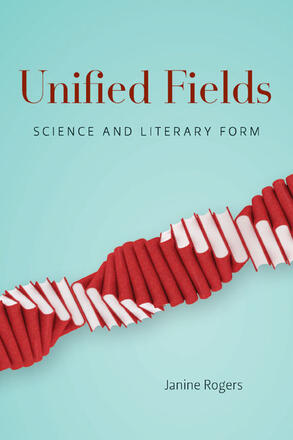
Unified Fields
Science and Literary Form
Description
Literary form presents an important opportunity for understanding the relationship between literature and science. Through a series of close readings of poetry and prose, Unified Fields demonstrates that formal structures in literature can relate to scientific concepts through their essential interpretive functions. Janine Rogers engages with a wide range of writing from Canadian, British, and American authors, including the poetry of Elizabeth Bishop and Robyn Sarah as well as prose by Margaret Atwood, Ian McEwan, and Stephen Hawking. She employs an interdisciplinary approach combining formalist, historical, and theoretical literary practice, informed by interpretive frameworks developed in the philosophy of science. Although dedicated to contemporary texts, Rogers's analysis is frequently rooted in historical contexts of form, including Euclidean geometry and medieval romance, developed when the distinction between literature and science was not so drastic. These historical connections demonstrate that continuities of form resonate in both contemporary literature and science. Through critical analysis and engaging prose, Unified Fields bridges an important disciplinary gap by revealing how literary practice informs scientific understanding.
Reviews
“Janine Rogers has written a book that is welcome and original in its explorations of contemporary poetry, fiction, and science. Striking a balance between engaging external sources and personal interpretations, Unified Fields is passionate criticism with a life and a voice.” Brian Bartlett, author of Ringing Here & There: A Nature Calendar and The Watchmaker’s Table
"Rogers's determination to bind literature and science together through close reading is genuinely promising. Proving that one can write about literature and science without talking ad nauseam about C. P. Snow, F. R. Leavis et al, she opens up an integrat